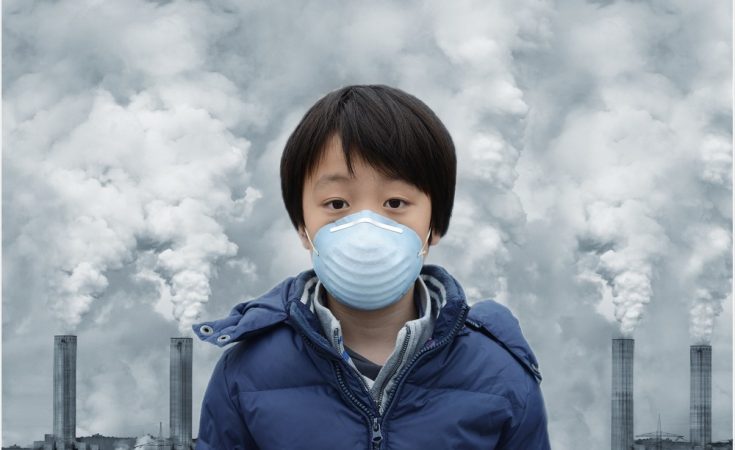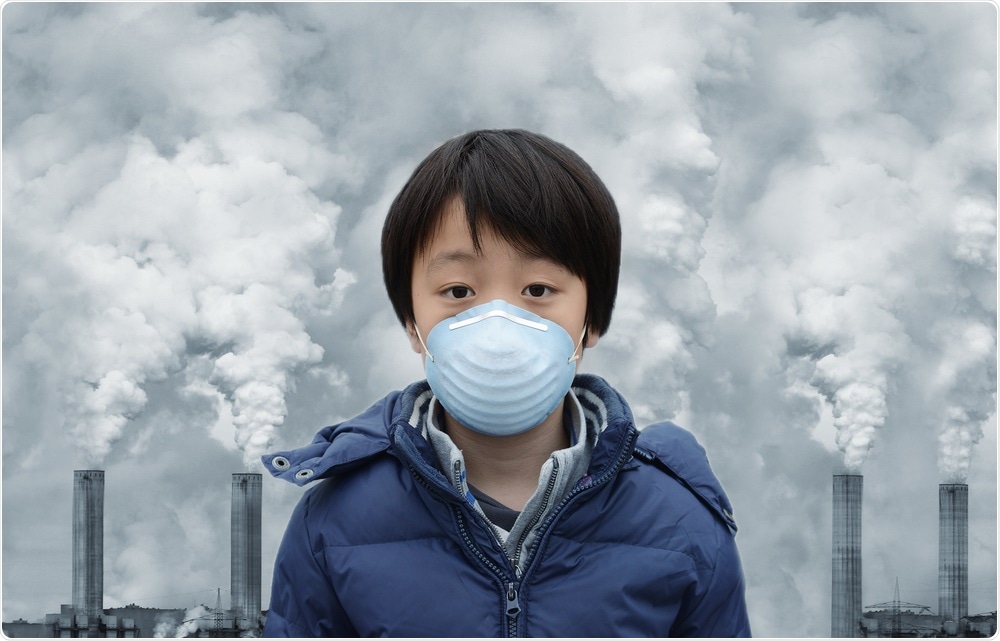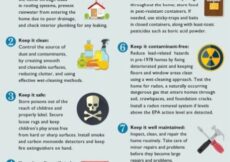In this interview, we speak to Dr. Philip Landrigan about his latest research into air pollution, its devastating effects, and how African countries are in a prime position to take action against it.
Please could you introduce yourself and tell us what inspired your latest research into air pollution?
I’m Dr. Philip Landrigan. I’m a pediatrician and public health doctor. I have been studying the impacts of toxic chemicals on children’s health for the best part of 50 years, starting with lead and pesticides.
In recent years, I’ve become more concerned about the impacts of air pollution on human health in general, and specifically on children’s health. It has become clear that air pollution has a whole range of adverse health effects, including impacts on children, and I’ve become more and more involved in studying those effects.
Statistics state that inhaling air pollution takes a minimum of one year off your life. Why is this and what are some of the biggest health concerns regarding air pollution?
Air pollution can cause a whole range of effects on health. Way back when I was a medical student, we were aware that air pollution could cause lung disease like bronchitis, but in the intervening years, because of good high quality, long-term epidemiologic studies, we have been able to associate a whole series of health effects with air pollution. It is the cumulative impact of all these effects that shortens life and reduces the quality of life for people.
For example, air pollution is responsible for roughly 22% of all heart attacks around the world. It is responsible for about a quarter of all strokes. It is responsible for about 40% of all chronic obstructive pulmonary disease (COPD) cases. It is responsible for a very high fraction of lung cancers also. I always thought that lung cancer was solely due to cigarette smoking and cigarette smoking is a very important cause of lung cancer, but we now realize that air pollution is also a very potent cause of lung cancer.
More recently, research has shown us that air pollution, specifically fine particulate air pollution known in the trade as PM 2.5, is associated with diabetes and there’s emerging research, it is not yet fully confirmed, that PM 2.5 air pollution can increase the risk of dementia and Alzheimer’s disease in the elderly.
In children, the exposure of a pregnant mom to particulate air pollution increases the risk of premature birth and low birth weight in kids. Air pollution is associated with asthma and with sudden infant death syndrome (SIDS).
Therefore air pollution is very, very toxic and has a whole range of effects. The World Health Organization (WHO) estimates that ambient air pollution, outdoor air pollution, is responsible for somewhere in the neighborhood of 5 million deaths around the world each year. So anything we can do to reduce air pollution in countries around the world, even in high-income countries like the UK and the United States, is going to increase life span because it is going to prevent disease and prevent premature death.
This information is very important on several levels. First of all, it’s important to individual people. It informs people to take measures to reduce their exposure to air pollution when they are able to do so. It also informs medical practice. Doctors, nurses, and other people who take care of patients can offer advice about how to reduce their exposure to air pollution and protect their health.
Finally, it informs policymakers. Policymakers pay attention to this information, after all, they worry about their own health and they worry about the health of their own families, not to speak of the health of the people who have entrusted them with their lives, who elected them to do office. When policymakers recognize that air pollution causes this very wide range of diseases, that impels them to take action.
The World Health Organization (WHO) estimates that ambient air pollution, outdoor air pollution, is responsible for somewhere in the neighborhood of 5 million deaths around the world each year.”
Image Credit: Hung Chung Chih/Shutterstock.com
Children are also the most vulnerable to air pollution compared to adults. Why is this and what problems can this have on children’s development especially in populations where access to education is already difficult?
Children are more susceptible and more sensitive to air pollution for several reasons. The first is that children breathe a lot more air each day than adults. Pound per pound, a child breathes around four times as much air per day compared to an adult. This, therefore, means the child is going to get a lot more pollution into their body through the inhalation route.
Secondly, children’s airways are narrower, so if pollution gets into a child’s airway and causes inflammation in the lining, it narrows down an already small tube, increasing the risk of respiratory disease. The health impacts of air pollution show up in children as increased rates of asthma and pneumonia.
In your latest research, you decided to investigate the impacts of air pollution on Africa, specifically Ethiopia, Ghana, and Rwanda. Why did you choose these countries in particular?
In the study that we published in Lancet Planetary Health, we looked at the impacts of air pollution across all of Africa, but we particularly focused on Ghana and Ethiopia, and Rwanda for a couple of reasons.
First, they gave us geographical diversity. Ghana is in West Africa, Ethiopia and Rwanda are in east Africa. Also, Ethiopia is northern and Rwanda is southern. So we got some geographical spread. Also, these three countries, are all emerging economies, but they are not at the same stage of development. Ghana is, further along, it is more industrialized than the other two. In Ghana, more of the air pollution is derived from industry and automotive sources. In the other two countries, the predominant source of air pollution is still household air pollution within homes resulting from the fumes that come out of poorly ventilated cookstoves. So that was the first reason we chose these. We wanted to be able to compare developmental stages in these different countries.
We also picked all three of these countries because they are all relatively early in industrial development, compared to the UK, compared to Europe, and compared to the United States. They are just beginning to industrialize. Africa is just beginning to urbanize. Most people still live in rural areas, although that’s changing. We wanted to see what was the intersection between early-stage economic development and the emerging threat of ambient air pollution, and what we saw with some slight differences across the three countries, is that in Ghana, Rwanda, and Ethiopia, levels of ambient air pollution are just beginning to tick up. Really just in the last five to ten years, it is still early days.
At the same time, death rates from like heart disease, and stroke, and cancer, and chronic constrictive lung disease, are just beginning to tick up. We said to ourselves, “Just like if you catch a disease in the early stages, you can interrupt its progress and prevent complications and save people’s lives.” It seemed logical to us that if we could intervene against ambient air pollution at an early stage in these countries, we could prevent an awful lot of disease, and an awful lot of premature death in the years ahead.
That is why we offered the suggestion in our report that wise, courageous, far-seeing leaders in the African countries have a magnificent opportunity to become early adopters of clean, renewable energy, and avoid getting their countries entrapped in coal and gas and oil and all the pollution and all the disease and all the premature death that is associated with the wide-scale combustion of fossil fuels.
It is fossil fuel combustion that is the major source of air pollution in countries around the world. It also happens to be the major source of the greenhouse gases that drive global climate change. If the leaders of African countries switch early, now, or soon as possible, to solar energy and wind energy, they can prevent the snowball effect of disease and death.
Also, it makes economic sense. We had economists on our team who wrote that paper and there are major economic benefits associated with early switching to clean energy. Number one, if you switch to clean energy and prevent disease and death, you will save all the healthcare costs that would be associated with taking care of people that become sick from breathing air pollution.
You also prevent productivity losses. When people get sick they can’t work, and when people are no longer able to work, that costs an economy. It means productive workers are taken out of the economy and the economy suffers. So, preventing air pollution prevents those effects.
We also came to realize that early life exposure to air pollution reduces intelligence in kids. It reduces children’s IQ and children who are not as bright as they could be, do not give as much back to an economy as bright, creative, intelligent kids. So for all these reasons, preventing air pollution is going to help economies.
Finally, one of the reasons why it has become so attractive these days to switch away from fossil fuels to wind and solar, is that it’s become incredibly cheap to produce electricity from wind and solar. For example, the cost of producing electricity from solar energy has dropped by 90% since 2010. The cost of producing electricity from wind has dived by about 50% in the same time. And it’s all about economy of scale. As more and more solar panels come online, as more and more windmills come online, it becomes cheaper and cheaper to buy them, operate them, and produce electricity.
Smart African countries that jump on the renewable energy bandwagon right now can really reap health benefits, economic benefits, and huge benefits in the quality of life for their citizens.
If the leaders of African countries switch early, now, or soon as possible, to solar energy and wind energy, they can prevent the snowball effect of disease and death.”
Can you describe how you carried out this research?
The way we did this study was that we mined data that had already been collected for other purposes, and put this information together in novel ways. Firstly, we needed to get information on the levels of air pollution in each of the African countries. For the most part, we got that information from the World Health Organization.
Secondly, we needed to know what were the rates of disease and death in each of the African countries or, to use the technical term, what is the burden of disease related to pollution in these countries. For that information, we relied on something called the Global Burden of Disease study, which is supported by the Gates Foundation and is carried out by the Institute for Health Metrics and Evaluation in Seattle.
For the economic data, our economists drew information from the World Bank and supplemented that with information from the economic ministries of the countries that we were looking at in Ghana, Ethiopia, and Rwanda.
Finally, the information that linked air pollution with IQ loss in children. That was new research that we did ourselves culling through the literature and coming to understand what the quantitative relationship between a given level of air pollution and a certain amount of IQ loss in kids is.
Image Credit: robertonencini/Shutterstock.com
What did you discover? Were there are any types of pollution that were more commonly observed than others? What might an explanation for this be?
Air pollution in Africa is a mix of two types of air pollution. There is household air pollution, which comes from poorly ventilated, indoor cookstoves inside houses that release a lot of fumes into the indoor environment. People are heavily exposed, especially women, because women do so much of the cooking in traditional societies and the little children who are with the women. Secondly, you have ambient outdoor air pollution that comes from factories, cement works, and cars, trucks, and buses.
What we learned is that the burden of disease from household air pollution is slowly decreasing across Africa, the same as it is in Asia and Latin America, and that’s because people are gradually switching over to cleaner fuels. They are switching from wood, charcoal, and straw, to, in some cases, LPG, which is liquid petroleum gas. In the best cases, they are going straight to solar and wind energy.
The deaths from household air pollution are going down, but at the same time, deaths from ambient air pollution and the levels of ambient air pollution are trending up. That’s because Africa is urbanizing, more people are moving into cities, there are more cars, trucks, and buses on the road. The continent is industrializing. There are more factories than there were 10 or 15 years ago. So this is the moment for wise leaders to intervene. On the one hand to get people off dirty fuels in their homes, and at the same time to transition to wind and solar energy so that cars, trucks, and buses can run on renewables and not on fossil fuels.
You also discovered that there was an increase in deaths due to ambient air pollution. Why is this a concern?
The reason that we are concerned about this increase in death from ambient air pollution is that it is the first indicator of a huge wave of disease and death that is looming over so many African countries in the future. What we have seen in other countries that started their industrial development is that the number of deaths from air pollution begins small and then as industrialization gathers steam, as the number of cars, trucks, and buses on the road increases, all of a sudden levels of ambient air pollution take off, and enormous numbers of people become sick.
We saw this in the UK and Europe, in the United States, and in other industrially developed countries in the 20th century before we passed our clean air legislation. Since that time, since the 1970s, the levels of air pollution in the UK and the United States have come way down.
We have seen the exact same pattern in the last 25 or 30 years in China and India. 25 or 30 years ago, the air quality in China and India was pretty good. Then, as the country industrialized, air pollution in those countries has rapidly increased. It is now the worst in the world in India and very high in China. China is just beginning to make some progress against it.
Africa is behind the others. It is 75 years behind Britain and the US. It is 30 or 40 years behind Africa and China, but it is trending in the wrong direction and it’s going to get a lot worse, pretty rapidly if countries do not take steps now to stop it.
What should governments be doing to help control and prevent air pollution?
Something that governments in all countries, including African countries, could do is to plan their cities in such a way that the cities are healthy. What I mean by that is don’t build cities around cars. Building cities around cars has proven to be a terrible mistake.
I think the classic example is Los Angeles, which is really a hundred miles from one side to the other, with freeways going everywhere, and they are absolutely clogged with cars most hours of the day and night. No matter how many freeways they build, more cars appear and the freeways remain clogged. All of this is a consequence of urban sprawl where low-density housing is built out for miles and miles and miles into the countryside. Then, people are forced to drive long distances to get to work, to get to school, to do the business of their daily lives.
The more cities can be designed to keep people out of their cars, the better the cities will be, the better the health of the people will be, and the better will be the air quality.”
Smart leaders can prevent all of this. The way to prevent it is to build high-density urban centers with lots of parks and green spaces. Instead of building cities around cars and freeways, build cities around public transportation. It could be underground, it could be surface. That is going to depend on the particular city. But building cities around public transportation, building cities so that there are lots of the places where people can walk, where there are lots of places where people can take bikes to work and not have to drive a car.
All of this keeps people active, prevents obesity, and prevents air pollution. It saves a lot of money. It increases the quality of life because if you have got density-packed people, high-density housing, then you can have nice little pubs where people can go in the evening, nice parks where they can hang out on the weekend. They do not have to spend their whole life driving from one place to another.
The more cities can be designed to keep people out of their cars, the better the cities will be, the better the health of the people will be, and the better will be the air quality.
Image Credit: ESB Professional/Shutterstock.com
Do you believe that we will see this number of deaths increase exponentially over the next decade if measures are not put in place?
Yes. I am extremely worried that if active, intentional steps are not taken now to reduce air pollution in Africa, the number of deaths is going to rise exponentially over the next couple of decades.
What are the next steps for you and your research into air pollution?
The next steps in our research are we are actually taking things down to quite a local level. Thomas O’Neill was a famous Irish-American politician in Boston, where I live, who said that all politics are local. I think it’s a very powerful maxim that applies in any country and we have decided that we would act on that insight.
So we have got a project we’re working on now, it is midway through. We are in the state of Massachusetts and we are looking at air pollution levels in every city and town across Massachusetts, from Provincetown at the tip of Cape Cod to Williamstown in the Berkshire mountains to the west. When this research is done, we are going to be able to produce maps and tables that say exactly how many cases of heart disease, how many strokes, how many cases of lung disease, how many premature births, and how many IQ points were lost due to air pollution in every single village, town, and city across the state.
We think that this kind of granular, highly local information is a powerful catalyst to action. It’s the kind of thing that politicians cannot ignore because it affects their own constituents in their own backyard. We think that once we get this research done and published and we have created a model that other people can use, we hope that other researchers around the world, across the US, and in the UK and Europe, can take the same approach and look at the burden of disease caused by air pollution, right in their own backyard. We think that that sort of information is very potent.
Where can readers find more information?
About Dr. Phil Landrigan
Philip J. Landrigan, MD, MScis a pediatrician and epidemiologist who directs the Program for Global Public Health and the Common Good and the Global Observatory on Pollution and Health at Boston College.
For four decades, Dr. Landrigan has undertaken research elucidating connections between the environment and human health and translated this research into disease prevention policies.
Dr. Landrigan’s studies of lead poisoning in children living near ore smelters were the first to show that airborne lead can cause childhood lead poisoning. They were also among the earliest studies to document that silent lead poisoning in children with no symptoms causes with IQ loss and behavior problems. These studies contributed to the removal of lead from gasoline, an action that reduced childhood lead poisoning in the USA by 95% and resulted in a nearly 5-point gain in the mean IQ of all American children born since 1980. Lead has now been removed from gasoline in every country.
From 1988-1993 Dr. Landrigan chaired a US National Academy of Sciences Committee on Pesticides in the Diets of Infants and Children. This Committee documented children’s exquisite sensitivity to pesticides and other toxic chemicals in the environment and catalyzed fundamental revision of US pesticide law to better protect children.
At the Icahn School of Medicine at Mount Sinai in New York, where he was a Professor of Pediatrics and Preventive Medicine from 1985 to 2018, Dr. Landrigan served as Chairman of the Department of Preventive Medicine and Dean for Global Health. He directed training programs in children’s environmental health, preventive medicine, and occupational medicine. He oversaw community-based health programs in East Harlem. After September 11, 2001, he directed the medical follow-up of 22,000 first responders – firefighters, police officers, paramedics, construction workers, and volunteers – who had served at the site of the World Trade Center disaster.
From 2015-2018, Dr. Landrigan co-chaired The Lancet Commission on Pollution and Health. This Commission found that pollution is responsible for 9 million premature deaths each year and for enormous economic losses. It showed that pollution can be prevented and that prevention is highly cost-effective. It laid the foundation for the Global Observatory on Pollution and Health.
Dr. Landrigan served on active duty in the US Public Health Service from 1970 to 1985 and in the Medical Corps of the United States Naval Reserve from 1996 to 2005. He retired from the Navy at the rank of Captain.
Dr. Landrigan graduated from Boston Latin School (1959), Boston College (1963), Harvard Medical School (1967), and the London School of Tropical Medicine & Hygiene, University of London (1977). He trained in pediatrics at Children’s Hospital Boston and trained in epidemiology at the Centers for Disease Control. In 1987, he was elected to the National Academy of Medicine.






































